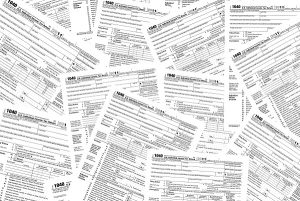Search
What is the Foreign Account Tax Compliance Act?
The Foreign Account Tax Compliance Act (FATCA) sets reporting requirements for both foreign financial insinuations and U.S. taxpayers who hold specified foreign assets. If your foreign financial institution is in a country that has an agreement with the United States, then you will be asked whether or not you are a U.S. person for tax purposes. Answering “yes” to this question will trigger a requirement on behalf of the financial institution to report your account information to the IRS.
Individual Requirements Under FATCA
By requiring foreign financial institutions to report account information for U.S. taxpayers, the government and the IRS have made it easier to track tax evasion by individuals who are hiding money in foreign bank accounts. In addition, taxpayers must file their own report of their foreign accounts, which is done on form 8938.
Form 8938 is filed along with your individual income tax return. Note that this filing requirement is in addition to any Foreign Bank Account Report (FBAR) filing requirement you may have. The thresholds and criteria for filing form 8938 and FBARs are also different.
While an FBAR filing requirement is triggered if your aggregate account balance exceeds $10,000d during the year, form 8938 has different threshold amounts depending on filing status and whether you live abroad or in the United States. Even for single taxpayers who live in the U.S., form 8938 is only required if the value of specified foreign assets exceeds $50,000 on the last day of the tax year, or more than $75,000 at any point during the year.
Because of the different thresholds and other requirements, you may have to file an FBAR, but not form 8938. However, you may also need to file both. The penalty for a failure to file form 8938 is $10,000, with an additional penalty of 40 percent of the value of non-reported income attributable to the foreign assets. You may be able to get these penalties waived if you can show that your failure to file was due to reasonable cause.
Offshore disclosure methods, such as the Offshore Voluntary Disclosure Program (OVDP) and the Streamlined Filing Compliance Procedures can also be used to come into compliance under FATCA. You should talk to a tax controversy attorney to determine whether you have FATCA or FBAR violations to disclose, or both. You will also need to figure out how many years of non-compliance you need to disclose, along with determining if your failure to report foreign assets will likely be considered willful or non-willful by the IRS.
For more information, download our free special report, Nine Questions You Should Be Asking About the IRS Streamlined Filing Compliance Procedure for Unreported Foreign Accounts.

 Tax Problem Attorney Blog
Tax Problem Attorney Blog


